India votes in the final phase of election
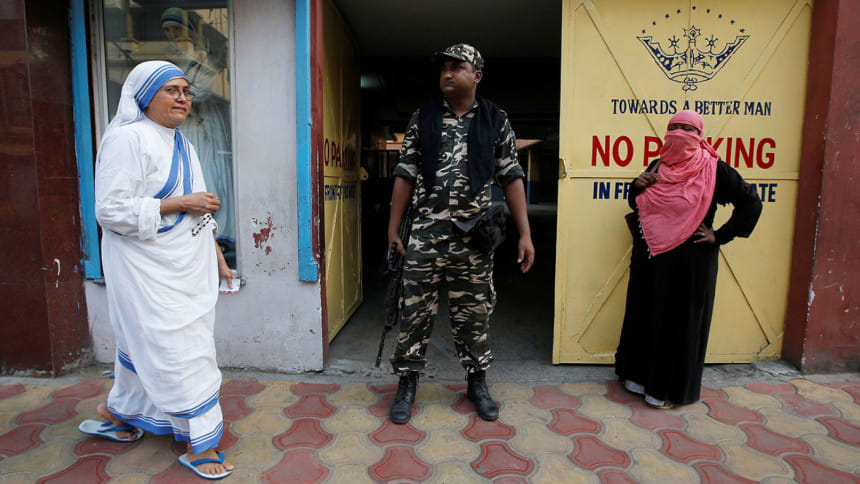
Millions of voters today stood in queue in front of polling stations to exercise their franchise in the seventh and final phase of Indian parliamentary elections.
This year's election is one of the most bitterly fought in recent memory and is a tough test for Prime Minister Narendra Modi's attempt in returning to power in the face of a strong opposition.
Polling in the last phase is being held in 59 constituencies spread across seven states and a federally-ruled territory, including in Varanasi in Uttar Pradesh where Prime Minister Narendra Modi is seeking to retain the seat.
Of the 59 seats going to poll today, the BJP won 33 in the previous general election five years ago when the party emerged victorious with a clear majority securing 282 seats of total 543 seats of Lok Sabha. It was the first time in 30 years' history that a party won such a decisive mandate. The Congress-led United Progressive Alliance had won just four seats.
Polling is also underway in all the 13 seats in Punjab and an equal number of seats in Uttar Pradesh, nine in West Bengal, eight seats each in Bihar and Madhya Pradesh, four in Himachal Pradesh, three in Jharkhand and a lone seat in Chandigarh.
An estimated of 10.01 crore voters are expected to decide the fate of 918 candidates. The Election Commission has set up more than 1.12 lakh polling stations for smoothly conducting the polls.
Counting of votes will be taken up on May 23.
This year's national polls has drawn a turnout of an average of 66.88 per cent in the last six phases of polling. Today's voting will draw an end to the fierce finale of the long-drawn exercise spread over 38 days.
In Uttar Pradesh, all eyes are on Varanasi, where besides Modi, 25 other candidates are in fray in the eastern part of the state where the BJP had won all the 13 seats in 2014 but this time is facing a tough challenge from Samajwadi Party-Bahujan Samaj Party coalition because of its caste arithmetic.
While the SP-BSP's support base among Yadav and Jatav castes and Muslims may see a consolidation of votes, the Congress, fighting separately, may eat into the BJP's upper caste votes by tapping into anti-incumbency.
Modi's main challengers in Varanasi are Congress's Ajay Rai and Samajwadi Party-Bahujan Samaj Party alliance's nominee Shalini Yadav.
Seven ministerial colleagues of Modi, including Manoj Sinha and Ravi Shankar Prasad, are trying their luck in the last phase in UP and Bihar states.
The major focus of today's voting is on the nine urban constituencies in West Bengal where an electorate of 1.5 crore will decide the fate of 111 candidates in Kolkata North and Kolkata South, Dum Dum, Barasat, Basirhat, Jadavpur, Diamond Harbour, Jaynagar (SC) and Mathurapur.
Eight seats, barring Jadavpur, will witness a contest among the Trinamool Congress, the BJP, the Congress and the Left Front. The Congress has given the Jadavpur seat a miss.
West Bengal Chief Minister Mamata Banerjee's nephew Abhishek Banerjee is seeking re-election in Diamond Harbour.
Four of the nine seats in West Bengal where polling is on today are urban and will be a test how the middle class there will vote. Diamond Harbour, Mathurapur, Basirhat and Jaynagar have sizable Muslims whose votes will shape the outcome there.
It remains to be seen how the violence during BJP President Amit Shah's roadshow in Kolkata, which saw the destruction of the bust of Bengal's Renaissance icon Ishwar Chandra Vidyasagar, plays out in the polling as Trinamool Congress tried to project it as a pride of the state's cultural legacy.
In a first such action in India's electoral history, the Election Commission had ordered curtailment of the campaigning time in the nine West Bengal constituencies by 20 hours in the wake of the violence between the BJP and the Trinamool workers during Shah's roadshow.
In Punjab, the Congress, which rules the state, is looking to repeat its winning performance in the assembly polls two years ago by banking on farmers loan waiver but opposition parties led by Shiromani Akali Dal are trying to regroup.
On most of the 13 seats in Punjab, the contest is a direct fight between the Congress and Shiromani Akali Dal-BJP alliance. In 2014, the Aam Aadmi Party and the Shiromani Akali Dal had won four seats each, the Congress three and the BJP two.
More than six lakh voters in the federally-ruled territory of Chandigarh will choose between sitting lawmaker and BJP candidate-actress Kirron Kher and India's former Water Resources Minister and Congress candidate Pawan Kumar Bansal.
In Bihar, four ministerial colleagues of Modi -- Ravi Shankar Prasad, Ram Kripal Yadav, R K Singh and Ashwini Kumar Choubey -- are among the 157 candidates in eight seats which went to poll today. S even of these seats were won by the NDA last time, five by the BJP.
The most keenly-watched contest in Bihar is in Patna Sahib where Prasad, one of the most prominent members of the Narendra Modi cabinet, is pitted against Shatrughan Sinha, actor-turned-politician, who won it on both occasions for the BJP and is now in the fray as the Congress candidate.

 For all latest news, follow The Daily Star's Google News channel.
For all latest news, follow The Daily Star's Google News channel. 


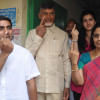
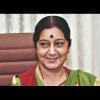
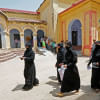
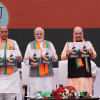
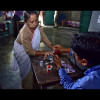


Comments